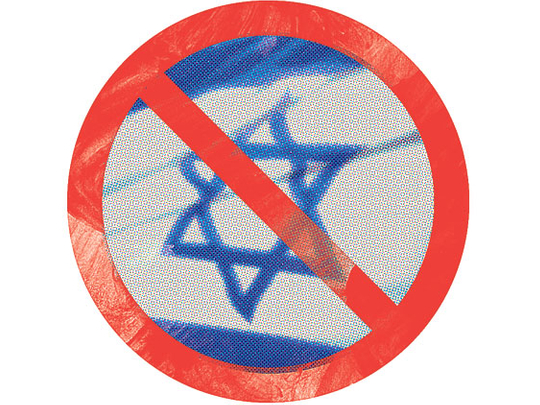
The BDS (Boycott, Divestment and Sanctions) movement represents an all inclusive mass campaign involving the various sectors of the Palestinian society at home and abroad.
By now, many know that this movement is waging a non-violent campaign to realise the following: (1) To end the Israeli colonial occupation of the West Bank and Gaza Strip through a wide venture campaign activity encompassing all economic and political aspects; (2) To attain the Palestinian inalienable rights spelled out loud and clear by UN resolutions and international law; and (3) To establish a viable independent state on the Palestinian territories occupied by Israel in 1967, with occupied east Jerusalem as its capital.
Despite all Israeli violations of international law in Palestine that are trying human patience to its extreme limit, the BDS continues to press ahead with its non-violent campaign designed to end the colonial Israeli occupation.
A recent important example of such efforts was the campaign to boycott the tourism conference of the Organisation for Economic Cooperation and Development (OECD) in occupied Jerusalem.
As a result, 13 countries boycotted the conference held on October 20, 2010. Among them were Britain, Sweden, Turkey, South Africa, Ireland, Norway, Canada and Iceland. Many other countries sent low-level delegations.
Israel's intent was to use the conference to assert its illegal annexation of occupied Jerusalem as ‘the eternal capital of Israel' although occupied east Jerusalem is still considered by the United Nations (that endorsed the establishment of the state of Israel) as "part of the Palestinian territories occupied in 1967".
Condemnation
The BDS declared the boycott of the OECD conference in occupied Jerusalem "a clear condemnation of Israel's continued ethnic cleansing of [occupied] Jerusalem".
A memorandum with a legal opinion was presented by Professor Guy S. Goodwin-Gill on Israel's accession to the OECD, entitled ‘Certain Legal Issues Arising from the Application of Israel to Become a Member of the Organisation for Economic Cooperation and Development'. Another memorandum was presented by Professor Karma Nabulsi to OECD member-states about their legal obligations during Israel's accession process.
On its part, the BDS National Committee (BNC) called for the conference location to be moved, because "organising this conference in [occupied] Jerusalem would allow Israel to use its membership in the OECD to whitewash its violation of international law while continuing the ethnic cleansing of [occupied] Jerusalem".
The BDS has established a section to gather information about Israeli and international companies that invest in or trade with Israel. It details their involvement and its implications on human rights and violations of international law.
Bankrupting Israel
The BDS is trying to bankrupt the Israeli colonial occupation of Palestine by its boycott, divestment and sanctions campaigns. Indeed, the BDS campaign against the OECD conference proved right as the movement's statement indicates; "Despite assurance from the OECD general secretary and member-states that delegates attending the controversial OECD conference in [occupied] Jerusalem would not recognise Israel's annexation of the city, the BDS activists were extremely shocked to see delegates of member-states arriving on buses owned by The Meteh Binyamin Regional Council, which has direct jurisdiction over 42 illegal colonies."
It is absolutely essential for the international community to support, by all means available, this Palestinian grassroots global movement, the BDS, which chose of its own free will to adopt non-violent methods to resist and to end the Israeli occupation of Palestinian lands.
Failing to do so, the international community would, and in the eyes of many, be telling the Palestinian people loudly and openly that non-violent methods to attain their civil rights is a futile act, thus, giving legitimacy to violence.
It is worth mentioning that a rising number of observers as well as ordinary people seem to be forced to believe that the only course left now is a resort to extreme violence because all peaceful means have, so far, failed to bring about a halt to the Israeli colonial expansion and apartheid system in Palestine.
The present situation looks extremely bad with the focus no longer on whether the Palestinians would be able to establish their independent state but whether the Palestinians inside Israel would be able to retain their Israeli citizenship.
Indeed, international security depends on how the Israeli-Palestinian conflict evolves from its present stalemate.
Professor As'ad Abdul Rahman is Chairman of the Palestinian Encyclopaedia.










